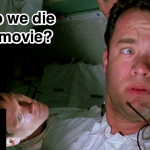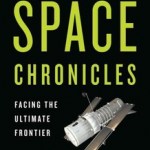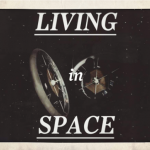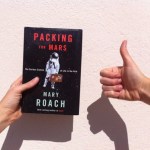space travel
I once knew a young woman who was in high school and shall remain nameless. One day I picked her up at school to drive her home, and asked how she was doing.
"Depressed, actually," she said.
"Why, did something go wrong at school?"
"Kinda," she replied. "The social studies teacher was out today."
"That's terrible, he must be a great teacher and stuff."
"No, he's average. But whenever they can't find a substitute the always show the same movie, and we watched it again today."
"That's depressing, watching the same movie over and over."
"No it's not if it is a good move. The movie itself is…
By Larry Bock
Founder and organizer, USA Science & Engineering Festival
Encouraging and motivating kids early in science and engineering via exciting, hands-on interactions in discovery may be one of the most important steps to boosting their interest and performance in these fields.
But if you think this job falls to teachers alone, you're wrong. Parents can, and should, play an active and frequent role outside the classroom, especially in creative ways that keep children's innate sense of curiosity and exploration alive.
"Kids love the chance to try experiments, visit zoos, or watch…
Neil deGrasse Tyson has a new book out: Space Chronicles: Facing the Ultimate Frontier. It is (as one might guess) about space exploration, and assembles earlier speeches and writings with some new stuff. This is an interesting time to be talking about the space program, as NASA seems to be producing new results ever week, there are large and small space robots on their way to distant orbs, or soon to be launched, we are on the verge of understanding the potential of life on Mars on a basic level, we are finding more earth-ish Exoplanets and at the same time the sky is falling, or at least…
In the mid-1970s, the U.S. State Department prohibited the internal use of the term "space colony," due to the global bad reputation of colonialism. Instead, the government opted for "space settlement." Of course, as Stewart Brand pointed out at the time, the last thing you do in space is settle. Quite the opposite! Making the decision to explore space -- and live there -- is just about the most unsettled act a human can commit.
There have always been two camps on this issue. First, the unsettled, like Brand: the science-fiction aficionados, capitalists, rocketry geeks, macrocosmic thinkers,…
We live in an age where truth is, if not stranger than fiction, then at least equally strange. Sometimes pop-science books illustrate this point with particular well-researched glee and Packing for Mars: The Curious Science of Life in the Void is such a book.
Where do I begin? It's a true nerd's smorgasbord. It answers all the scatological and emotional questions that kids always imprudently ask astronauts. It acknowledges the humanness of space travel as a venture: that astronauts are people who must eat, pass gas, have sex, take up space, sweat, sleep, fear, and otherwise learn to be…
tags: A Rocket of His Own, TIME magazine, astronomy, AMNH, American Museum of Natural History, space travel, Saturn V rocket, The Seven Wonders of America, Marshall Space Flight Center, Neil deGrasse Tyson, streaming video
TIME magazine recently went to interview astronomer Neil deGrasse Tyson and noticed a huge crate had been delivered to his office at the American Museum of Natural History. He was kind enough to open it on-camera. The back story of this gift is that Neil was adamant that ABC News include the Saturn V Rocket on its list of The 7 Wonders of America. The folks at the Marshall…



